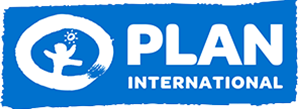Current Projects
Improve Lifelong Learning through Enhancing Quality of Learning for Out of School Children (EQUAL-i3L)
Project Summary
The EQUAL Project - Phase 2 (EQUAL-i3L) is an education-focused initiative by KAPE aimed at enhancing lifelong learning for out-of-school children, particularly girls, ethnic minorities, individuals with disabilities, and other vulnerable groups. Implemented over three years (2024–2027) in 45 state schools (40 primary and 5 lower secondary) in Ratanak Kiri Province, Cambodia, it builds on a previous phase (2021–2024) that targeted 15 schools. The project employs a two-tiered approach: Tier 1 (Basic Investment) focuses on enrolment, attendance, and retention in underperforming schools, while Tier 2 (High Investment) enhances teaching quality and governance in high-performing schools. It targets 9,658 enrolled students (47% girls) and aims to reintegrate 450–675 out-of-school children annually, alongside engaging 14,715 parents, 218 teachers, and school administrators.
Main Goal
The main goal is to increase the quality of teaching and learning for marginalized children, adolescents, and young people, particularly those with disabilities, from minority groups, and LGBTIQ+ individuals, focusing on numeracy, literacy, and successful transitions from primary to lower secondary levels. The project has four key outcomes:
- Improve teaching pedagogy for equitable access and retention;
- Enhance learning performance to boost retention and reduce dropout rates;
- Promote good school governance to achieve model school standards; and
- Establish effective quality assurance mechanisms to engage local stakeholders in project revisions.
Project Update
This proposal marks the transition to Phase 2 (EQUAL-i3L), expanding from 15 to 45 schools and including a new district called Ou Chum. Building on Phase 1 (2021–2024), it addresses persistent challenges like high dropout rates (e.g., 32% at Grade 6) and overage enrolment (e.g., 60% in Ou Chum at lower secondary). The project integrates lessons learned, such as the need for targeted remedial teaching and community engagement and aligns with MoEYS policies distinguishing between Normal and Model schools. Baseline data collection is planned for Year 1 to refine indicators and strategies.
Key Activities
- Capacity building for 75–135 contract teachers annually on pedagogy;
- Training 230 teachers on learner-centered, gender-responsive, and inclusive methodologies;
- Providing teaching materials and training for Tier 1 schools;
- School mapping to identify out-of-school children;
- Implementing the School Safety Framework;
- Enrolment campaigns targeting vulnerable households;
- Establishing Early Warning Systems to prevent dropouts;
- Setting up school gardens for hands-on learning;
- Remedial and accelerated learning classes;
- Distributing menstrual hygiene materials;
- Supporting student councils and parent meetings; and
- Conducting project launches and reflection workshops.
Targeted Beneficiaries
The project targets 9,658 enrolled students (4,575 girls, 47%) across 40 primary and 5 lower secondary schools, and 450–675 out-of-school children annually, primarily girls and minorities. It also benefits 14,715 parents, 218 teachers (110 female), 45 school principals, and 25 vice principals.
Indirect beneficiaries include school management committees and community members who gain from improved educational services, capacity building, and governance structures.
Targeted Province
The project is implemented in Ratanak Kiri Province, covering three districts: Andoung Meas, Bor Koev, and Ou Chum. It spans 21 communes and 45 villages, targeting 45 schools (25 in Year 1, expanding to 45 in Year 2 and 3). The region is rural, with a diverse population (36% Ethnic Khmer, 10% Ethnic Lao, 54% Khmer Loeu).
Project Impact
The project aims to improve educational access, quality, and inclusivity, reducing dropout rates (e.g., from 32% at Grade 6) and overage enrolment (e.g., 60% in Ou Chum). It will enhance numeracy and literacy, support transitions to lower secondary, and empower girls and minorities through gender-transformative approaches. By 2027, it expects 60% of schools to adopt child-friendly learning strategies, strengthen governance, and engage communities, fostering sustainable educational improvements.
A Glance into the Future
By 2027, the project envisions transforming high-performing schools into model institutions that guide lower-performing ones, sustaining improvements through community resource mobilization and school improvement plans. A participatory exit strategy will ensure schools continue activities via local funding and advocacy. The project aims to create a lasting impact on educational equity, particularly for girls and minorities, aligning with Cambodia’s education reforms.
Start Date and End Date
The project is scheduled to commence on July 1, 2024, and conclude on June 30, 2027, spanning three years.
Donor and Budget Plan
The project is fully funded by Plan International Cambodia with a total budget of $500,042 over three years (Year 1: $159,472; Year 2: $194,211; Year 3: $145,859). Additional support comes from local stakeholders like Village Chiefs, Commune Councils, and MoEYS. KAPE’s 2023 revenue was $5,019,856, with contributions from various donors, including MoEYS ($1.8M) and Kinchan Foundation ($1.7M).

Inspirational Message:
"Education is the key to unlocking the potential of every child, regardless of their background. Through EQUAL-i3L, we are committed to creating inclusive, equitable, and transformative learning environments that empower girls, minorities, and vulnerable children to thrive. Together, we can build a future where every child in Ratanak Kiri has the opportunity to learn, grow, and succeed."
117
Preschool(s)
178
Primary Schools
207
High Schools
2
Higher Education Institutions
163,072
Students
4,487
Teachers/Directors
5,362
Stakeholders




